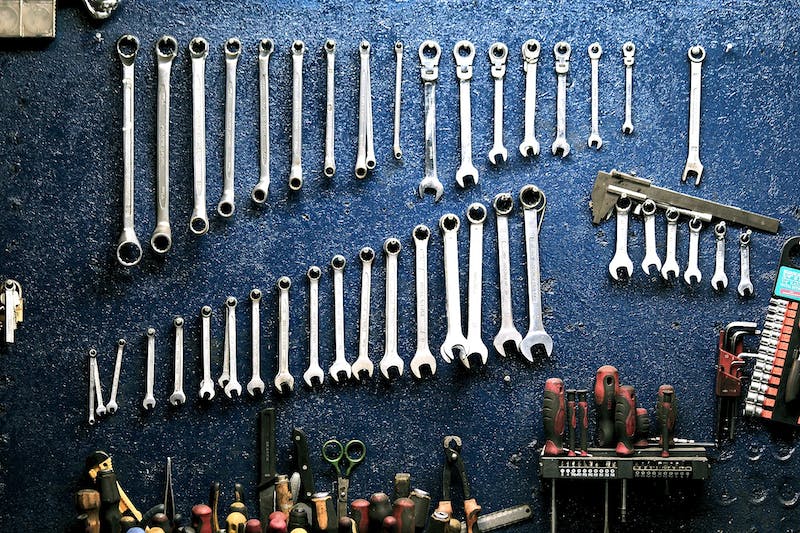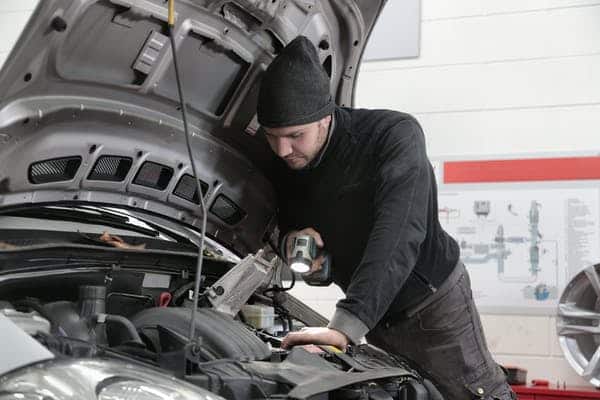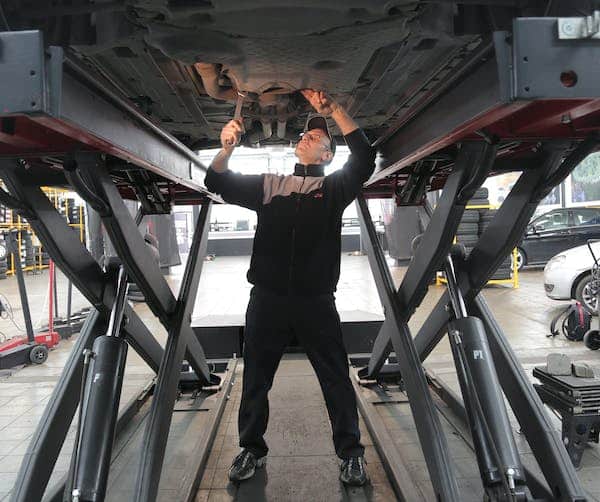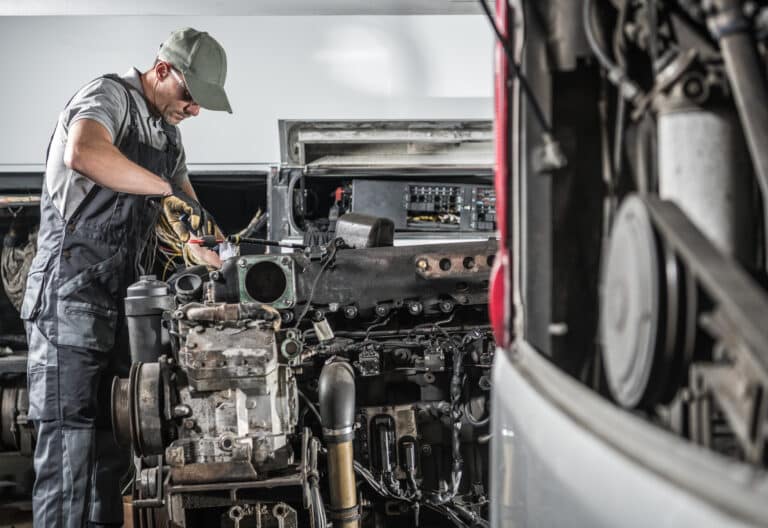A career in Diesel Mechanics is considered to be highly rewarding. Plus, the demand for diesel mechanics is already on the rise and is further set to increase by 4% by the year 2031.
Who are Diesel Mechanics?
Diesel mechanics are skilled workers who inspect and repair automobiles and vehicles powered by diesel engines. Their duties range from changing oils to identifying and solving malfunctions in automobiles. (Read More: What is a Diesel Mechanic)
Since diesel mechanic work on diesel engines, they require various specialized tools that help repair vehicles efficiently.
The list of tools a diesel mechanic requires is long, and understanding which ones you need and how each can be used can be especially confusing if you’re just starting as one.
We aim to break down this huge list of tools that might help you gain a basic understanding of everything a diesel mechanic is required to work within a workshop.

Tools Required by a Diesel Mechanic
Skilled workers such as diesel mechanics need a certain set of tools to ensure hassle-free work while also ensuring minimal or no scopes of error. Here is a comprehensive list of all the tools required by a diesel mechanic working in a repair or maintenance workshop-
Screwdrivers
- Philips and flatheads
- Torx screwdrivers
Sockets
- 1/2″ drive socket set
- 3/8″ drive socket set
- 1/4″ drive socket set
Ratchets
- 1/2″ standard ratchet
- 1/4″ standard ratchet
- 3/8″ standard ratchet
Hammers
- Sledgehammer
- Dead blow hammer
- Ball peen hammer
Wrenches
- Standard wrench– 5/16″-1 1/4″
- Metric wrench– 8mm-22mm
- Adjustable wrench
- Pipe wrench
- Ratchet wrench
- Oil filter wrench
Pliers
- Standard pliers
- Needle nose pliers
- Adjustable pliers
- Vise-grip pliers
- Side-cutting pliers
Pry Bars
- 3-foot pry bars
- 2-foot pry bars
- 1-foot pry bars
Safety Equipment
- Safety glasses
- Work gloves
- Hearing protection
- Face shield
- Safety shoes

Adapters
- ¼-inch to ⅜-inch
- ¼-inch to ½-inch
- ⅜-inch to ¼-inch
- ⅜-inch to ½-inch
- ½-inch to ⅜-inch
- ½ to ¼-inch
- ½-inch to ¾-inch
- ¾-inch to ½-inch
Allen Drivers
- Standard 3/32-inch to ⅜-inch and metric 3-millimeter to 17-millimeter
- Standard Allen wrench set .05-inch to ⅜-inch
- Metric Allen wrench set 2-millimeter to 12-millimeter
Extensions
- 2-inch
- 6-inch
- 12-inch
- 24-inch
Multimeter
- Auto-ranging
- Digital read-out
Feeler Gauge Set
- Red handle for exhaust
- Blue handle for intake
Miscellaneous Tools
- Flashlight
- Hacksaw
- Knife
- Tire gauge
- Wire brush
- Measuring tape
- Adapters
- Extensions
- Impact Gun
- 12-foot measuring tape
- 15-inch aligning bar
- Adjustable all-angle inspection mirror
- Battery post cleaner
- Battery terminal clamp puller
- Cotter key extractor
- Crimp/stripper tool
- Dial caliper
- Drill bits 1/16-inch to ½-inch
- Extractor set (broken bolt)
Do You Need All The Tools?
Don’t get overwhelmed by the huge list of tools. You’re not required to buy them all, especially if you’re just starting out.
Some employers also provide beginner diesel mechanics with a basic set of tools. You can build your own tool set as you gain experience and work independently.

You can also start to build your own set of tools by either borrowing tools from retiring diesel mechanics or the ones that are selling their tools. This way, these tools can prove to be cost-effective.
Tips for Buying Diesel Mechanic Tools
Getting your tools can be a challenging task. Here are 4 key tools you should keep in mind to ensure you get the best equipment and build your toolbox.
- Look for tools online
You can try online shopping if you want to look for the most affordable and quality tools. Online shopping helps you pick the best tools, as it also allows you to track reviews.
- Try local shops
You can also look for diesel mechanic tools around you within your community. Many local options are often available, such as garage sales or obtaining tools from retired or working professionals who want to sell their old tools.
- Warrantied tools
While buying diesel mechanic tools, checking for any available warranties is vital. If the warranty is longer, you can get your defective tools repaired or replaced for free.
- Investing in quality tools
Looking for affordable and local equipment with a proper warranty is preferable if you’re just starting your career as an apprentice. However, investing in high-quality tools would help you in the long run, as such tools are also expected to last longer compared to local or second-hand tools.
Common Diesel Mechanic tools
Even though a typical repair or maintenance workshop for diesel mechanics involves the use of numerous specialized tools, there are some basic tools that every workshop is required to have, such as:
- Hammer
- Wrenches
- Socket Sets
- Screwdrivers
- Softwares
Software is slowly becoming an essential tool required within diesel repair workshops as professionals are slowly drifting toward using new technologies to assist them with identifying and repairing automobiles.
Additional Resources:
- Diesel Mechanic Apprenticeship
- What Does a Diesel Mechanic Do
- How to Become a Diesel Mechanic
- Diesel Mechanic Training
- Diesel Mechanic School
- Diesel mechanic certifications
- Diesel Mechanic Degree
- Diesel Mechanic Requirements




